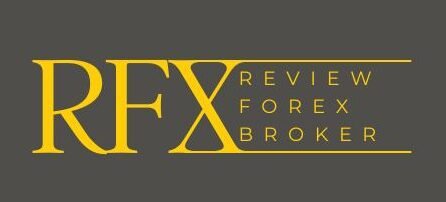The foreign exchange (Forex ) market is one of the largest and most liquid financial markets in the world, attracting traders from all walks of life. However, navigating this market can be complex, especially when it comes to choosing the right broker. One of the most critical decisions you’ll face is whether to trade with a regulated or unregulated Forex broker. In this blog, we’ll explore the differences between these two types of brokers and what you need to consider when making your choice.
1. Understanding Forex Regulation
Overview
Forex regulation refers to the oversight of Forex brokers by government authorities or regulatory bodies. These institutions set standards for broker operations, ensuring that they adhere to specific guidelines designed to protect traders and maintain market integrity.
Key Regulatory Bodies
- Financial Conduct Authority (FCA): Regulates brokers in the United Kingdom.
- Commodity Futures Trading Commission (CFTC): Oversees Forex trading in the United States.
- European Securities and Markets Authority (ESMA): Regulates Forex brokers within the European Union.
- Australian Securities and Investments Commission (ASIC): Regulates brokers in Australia.
2. Regulated Forex Brokers
Overview
Regulated Forex brokers are those that have received licenses and are under the supervision of a regulatory body.
Benefits
- Increased Security: Regulated brokers must adhere to strict operational standards, which helps protect client funds and ensures fair trading practices.
- Transparency: They are required to provide clear information about fees, spreads, and trading conditions.
- Dispute Resolution: Regulatory bodies often have mechanisms in place to handle disputes between brokers and traders, providing an added layer of security.
- Segregated Accounts: Client funds are typically held in separate accounts, safeguarding them from the broker’s operating funds.
Considerations
- Compliance Costs: Regulated brokers may pass on the costs of compliance to traders through higher spreads or fees.
- Limited Leverage: Some regulators impose limits on leverage to protect traders from excessive risk.
3. Unregulated Forex Brokers
Overview
Unregulated Forex brokers operate without oversight from regulatory bodies. They may be based in jurisdictions with lax or no financial regulations.
Risks
- Lack of Security: Trading with unregulated brokers can expose you to higher risks, including the potential loss of funds due to broker insolvency or fraud.
- Limited Transparency: Unregulated brokers may not disclose important information about fees, spreads, or trading practices, making it difficult for traders to make informed decisions.
- No Dispute Resolution: If issues arise, traders have limited recourse for resolving disputes, as there is no regulatory authority to turn to.
- Risk of Scams: The absence of regulation increases the risk of encountering fraudulent brokers that may engage in unethical practices.
Considerations
- Potential for Higher Leverage: Some unregulated brokers offer higher leverage, which can attract traders looking for bigger profits but also increases risk.
- Promotional Offers: They may provide enticing bonuses or promotions to attract clients, but these can come with hidden conditions.
4. How to Choose the Right Broker
Key Factors to Consider
- Regulatory Status: Always check if the broker is regulated by a reputable authority. Look for licenses and verify them through the regulatory body’s website.
- Reputation: Research broker reviews and feedback from other traders. A broker’s reputation in the industry can provide insights into their reliability.
- Trading Conditions: Compare spreads, commissions, and leverage offered by different brokers. Ensure that the trading conditions align with your trading strategy.
- Customer Support: Evaluate the quality of customer service. A responsive support team can be crucial, especially in resolving issues quickly.
- Educational Resources: Some brokers provide educational materials and tools that can help you improve your trading skills.
5. Conclusion
Choosing between regulated and unregulated Forex brokers is a critical decision that can significantly impact your trading experience and success. While regulated brokers offer enhanced security, transparency, and support, unregulated brokers may appeal with higher leverage and enticing offers. However, the risks associated with unregulated brokers can outweigh these benefits.
Ultimately, it’s essential to prioritize security and credibility when selecting a Forex broker. By doing thorough research and considering the factors outlined in this blog, you can make an informed decision that aligns with your trading goals and risk tolerance. Whether you’re a novice trader or an experienced professional, understanding the implications of regulation in Forex trading is vital for safeguarding your investments and ensuring a successful trading journey.

